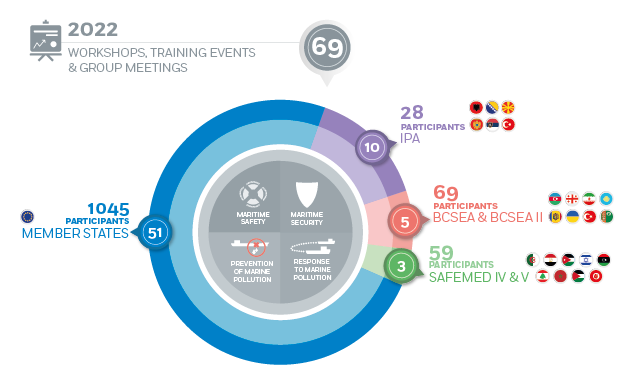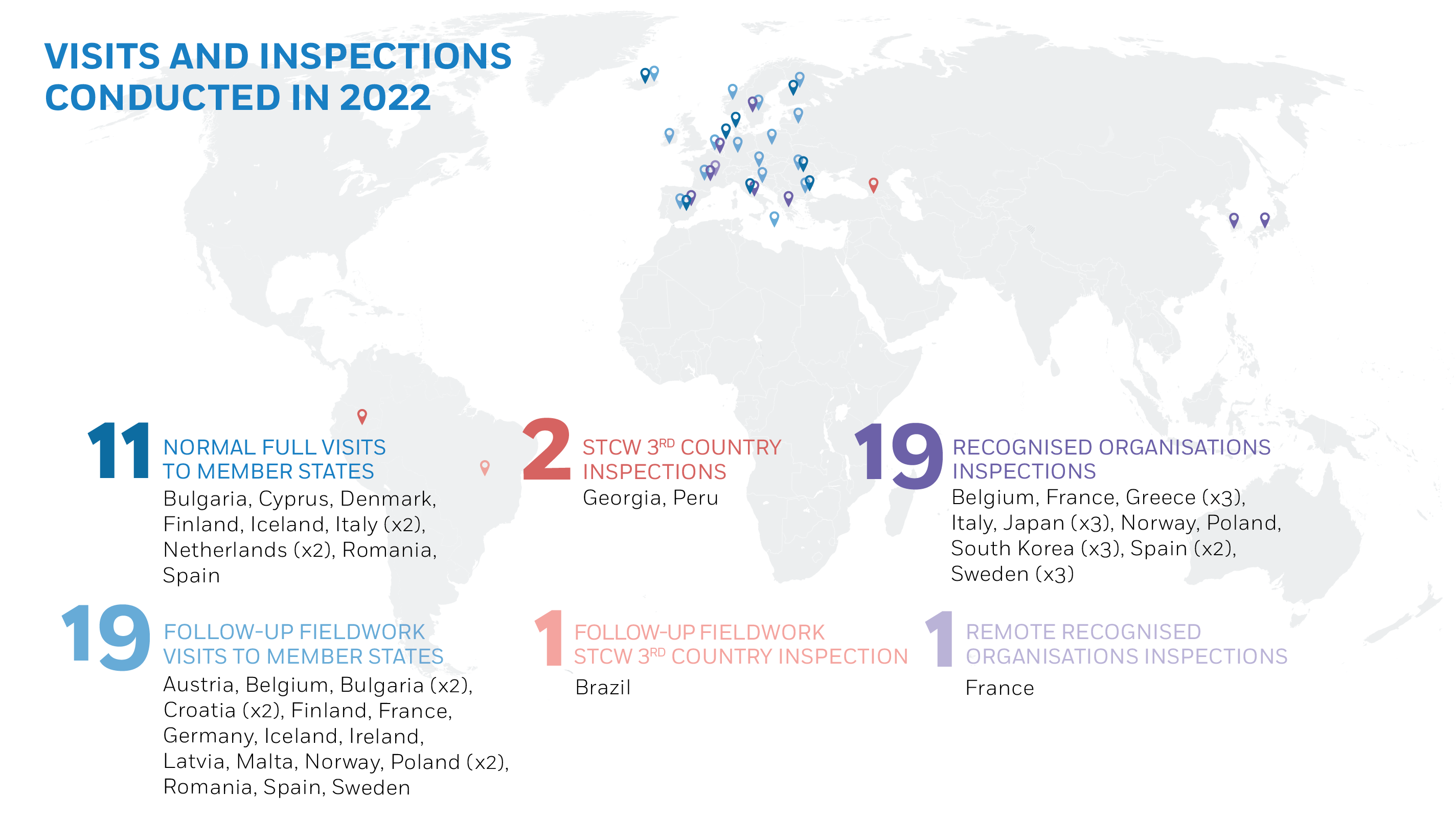2022: Sustainability and technical assistance

In 2022, we continued to support the European Commission on the maritime dimension of the European Green Deal, focusing on the legislative initiatives linked to the Fit for 55 package. We began a new study series on alternative fuels, starting with ammonia and biofuels.
In the context of the implementation of the Marine Strategy Framework Directive, we continued work on underwater noise, and participated in the relevant technical groups at EU level.
In 2022, we equipped 12 of our 16 chartered oil spill response vessels with light Remotely Piloted Aircraft System (RPAS), we installed our fifth Equipment Assistance Service (EAS), and we made near shore equipment available in all our stockpiles, helping to improve Member State preparedness in the event of a pollution incident.
Find out more about our sustainability work in 2022:
2022 saw the ending of COVID-19 travel restrictions in many places, allowing us to carry out more visits and inspections than the pre-pandemic yearly average. We concluded two visit cycles and began the third cycle of STCW.
Learn more about our technical assistance work in 2022:
The EMSA Academy hit cruising speed in 2022, with the delivery of two common core curricula and ISO accreditation for the design, development, and delivery of learning services outside formal education in the Maritime Domain.

Throughout 2022, the EU Maritime Profile was fully updated and enhanced, with new datasets and categories.
Our projects in support of European Neighbourhood Policy countries in the Black and Caspian Sea and in the Mediterranean ended in 2022. The new projects – BCSEA II and SAFEMED V – have a larger budget and even more ambitious work plans.

